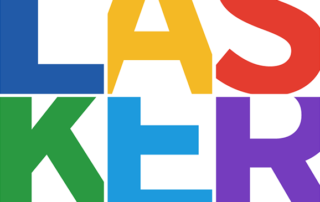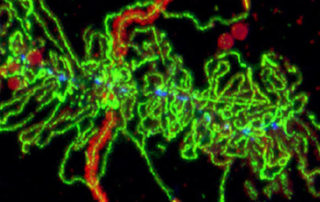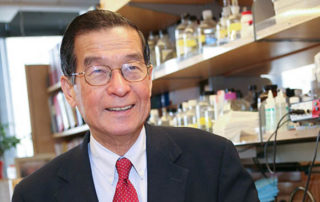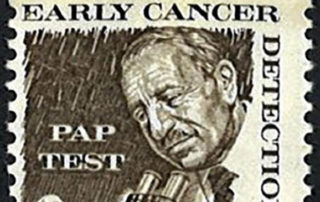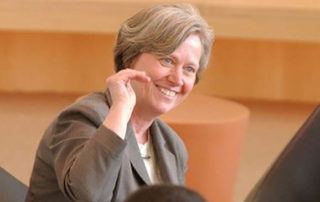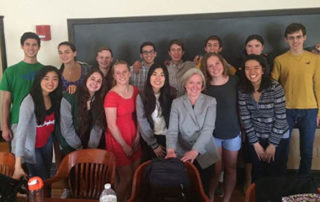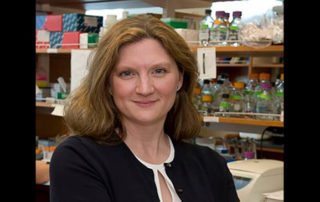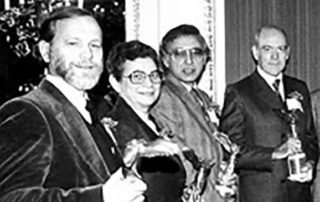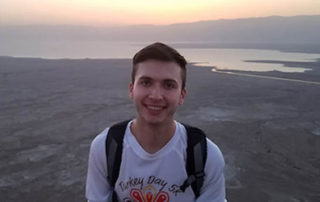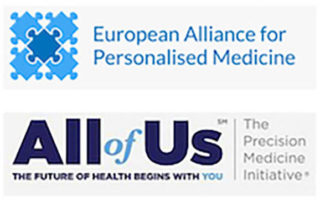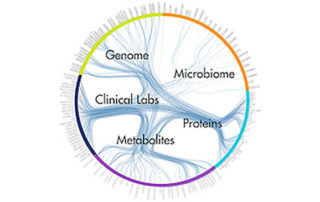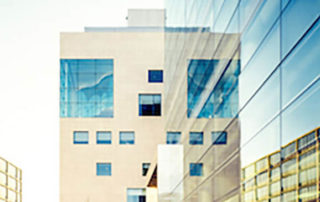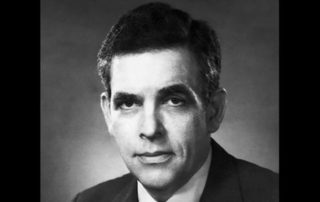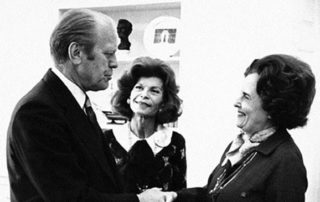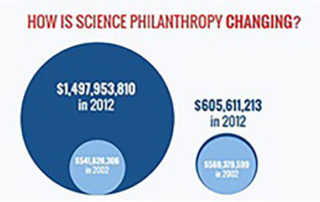Select a Date
Spring 2018 Newsletter
2018 Spring
Get a global view on global health—Learn about Lasker Laureate William Foege’s “surveillance and containment” strategy to eradicate smallpox, hear from Lasker Laureate Alfred Sommer about recent “near-miss” epidemics, and read about how government, non-profit, and industry sectors all play a role in global health.
Advances in Diagnostics: From Antibiotic Resistance to Single Gene Disorders
DEC. 5, 2017
Image-based rapid detection systems, non-invasive real-time technologies, wearable devices – read about new and exciting advances in diagnostics research.
How Butterfly Nets Helped Joseph Gall Transform Modern Cell Biology
DEC. 5, 2017
Lasker Laureate Joseph Gall, the founder of modern cell biology, reveals some of the secrets behind his success.
The Critical Role of Diagnostic Technologies in Improving Health
DEC. 5, 2017
Newsletter Fall 2017. We look at some of the milestones in diagnostics innovation and we speak with leading scientists to learn more about progress and challenges in the field
In Utero Gene Therapy
DEC. 4, 2017
Lasker Laureate Yuet Wai Kan discusses major challenges in the development of novel therapies employing stem cells for the treatment of sickle cell disease and thalassemia.
The Inventor of the Pap Test
DEC. 4, 2017
Follow Lasker Laureate George Papanicolaou's path from studying music and humanities to developing a diagnostic method for detecting cervical cancer.
Fall 2017 Newsletter
2017 Fall
From the development of the Pap smear in the 1940s to new non-invasive prenatal testing techniques, Lasker Laureates have played an important role in improving diagnostic technology, sometimes unexpectedly. Read an interview with leading scientists from academia, industry, and government on new developments, and learn about historic milestones that have changed the way diseases are diagnosed and treated.
Princeton President Emerita to Women Scientists: Toss Guilt out the Window
JULY 13, 2017
Shirley Tilghman shares with the Lasker Foundation what contributed to her early success as a scientist, how she became president of Princeton University, and strategies to help women attain leadership positions. (Podcast available)
Securing the Future of the Biomedical Workforce
JULY 13, 2017
Young scientists face many career challenges today. We explore these issues in our summer newsletter through interviews with early-career scholars and with established leaders in the biomedical field.
Being a Physician-Scientist Today
JULY 12, 2017
Beth Kozel, a Lasker/NIH Clinical Research Scholar, talks about the challenges and rewards of being a physician-scientist.
Neufeld’s Advice to Young Scientists: Be the Best You Can Be
JULY 12, 2017
Lasker Laureate Elizabeth Neufeld on being a woman in academia in the late 1940s and early 1950s, her advice to young scientists today, and what getting a Lasker Award meant to her.
Q&A with the Winner of the 2016 Lasker Essay Contest
JUNE 27, 2017
David Ottenheimer shares with Lasker what inspired him to pursue a career in the field of psychiatric illness, the role of researchers in science communication, and how he sees his future as a young scientist.
Summer 2017 Newsletter
2017 Summer
Get advice on how to succeed in science from three accomplished women in science—Lasker Laureate Elizabeth Neufeld, president emerita of Princeton University Shirley Tilghman, and Lasker/NIH Clinical Research Scholar Beth Kozel. We also talk to the 2016 Lasker Essay Contest winner about his future as a young scientist.
21st-Century Healthcare: Big Data Medicine
APRIL 10, 2017
Precision medicine and systems medicine approaches explore the possibility of integrating big data into medical practice to provide more effective therapies and disease prevention strategies.
Leroy Hood: There Is Going to Be a Fantastic Revolution in Medicine
APRIL 10, 2017
Leroy Hood, Lasker laureate and president and co-founder of the Institute for Systems Biology, discusses how systems medicine could revolutionize current medical care.
Susumu Tonegawa on Heading World-Class Brain Research Institutes
APRIL 10, 2017
Susumu Tonegawa, Lasker laureate, director of the RIKEN Brain Science Institute in Japan, and former director of MIT’s Picower Institute for Learning and Memory, shares his thoughts on what makes the RIKEN Institute special and why collaboration occurs naturally at the Picower Institute.
Lasker Archives: Passion and Optimism in Scientific Research
APRIL 9, 2017
From the archives: Geneticist and Lasker laureate Philip Leder discusses his work on solving the genetic code, why patents are important, and what drives his research.
Spring 2017 Newsletter
2017 Spring
Learn about 21st-century healthcare—precision medicine and systems medicine—and how the Lasker Laureates who discovered the genetic basis of antibody diversity are leading the way. Read exclusive interviews with Leroy Hood, Susumu Tonegawa, and Philip Leder
Catalyst for the National Cancer Act: Mary Lasker
DEC. 15, 2016
From the community: High-School Senior, aspiring scientists and student cancer researcher, Langley Grace Wallace, writes about Mary Lasker's role as a catalyst for the National Cancer Act of 1971 and her impact on the nation's elite scientists.
Enlisting Philanthropies to Invest in Basic Medical Research
NOV. 15, 2016
What is the role of science philanthropy today? How does private investment in science and technology compare to that of the government, and what challenges stand in the way of more support for basic research?
